It’s probably the biggest decision you’re going to make when it comes to making funeral plans.
So what’s the better- Burial or Cremation?
Well the truth is, there’s no easy answer.
Both have their pro’s and con’s which we’ll discuss in detail.
The decision will come down to what’s right for you and your family.
And this will be based on your budget, personal beliefs, religion, and other factors.
If you’re not sure yet, take your time to go through some of these important pro’s and con’s.
Cremation & Burial Statistics
There’s no doubt that cremation is on the rise. According to the Cremation Association of North America (CANA), the rate has grown from 48.6 in 2015 and is expected to rise to 54.3 by 2022.
A recent study by Harris Poll, which was commissioned by the Funeral and Memorial Information Council (FAMIC,) reported that 65% of Americans were definitely or likely to choose being cremated.
These statistics indicate that at this time, the decision to be cremated versus buried is close to half and half, but appear to be leaning towards the latter in the future.
Burial Vs Cremation: Cost Comparison
Frequently, people choose cremation because they perceive it to be cheaper than burial.
While this is mostly true, extra options can frequently increase the total cost of cremation to as much and sometimes more than a basic burial.
Below is a breakdown of the approximate costs associated with each one, beginning with the basic costs and then with the added options that may be offered:
Basic Burial Services:
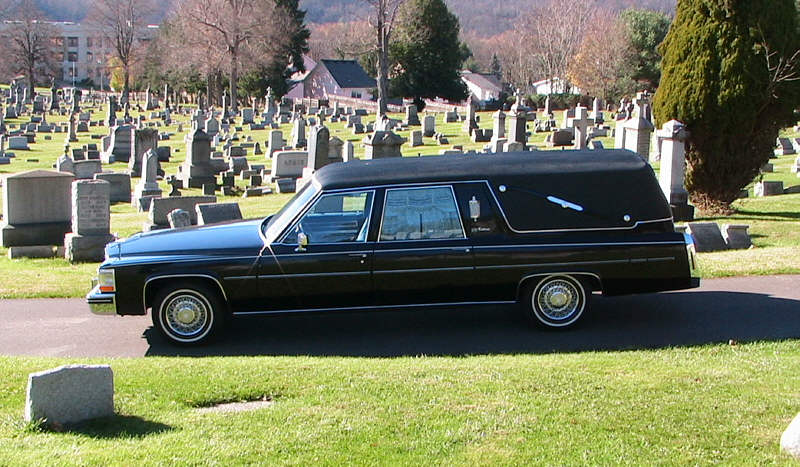
- Fee for a basic service – $2000
- Transportation of the body to the funeral home – $300
- Preparation of the body – $200
- Embalming – $700
- Car for the transportation of flowers and other belongings – $130
- Use of the staff and facility for the viewing and funeral – $900
- Hearse – $300
- Memorial print package such as memorial directories, registration book, acknowledgement cards – $150
Additional Burial Costs:
- Grave plot- $1000
- Burial vault – $1300
- Opening and closing fee – $1200
- Casket (metal) – $1000 – $15000
- Headstone – $1500
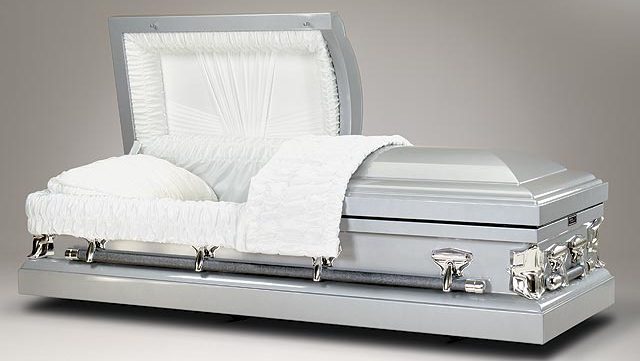
Burial Casket by Casket Site
Additional Cremation Costs:
- Casket rental – $1000
- Urn – $250
- Cremation – $30
Direct Cremation:
If the previous costs are unaffordable, there is another cheap cremation option. Here is a breakdown of what is included:
- The body is cremated immediately after death. You will engage the services of a crematory, bypassing the expense of a funeral home.
- The body can be cremated in a simple cardboard container.
- No memorial service is held.
- No embalming or other preparations of the body are necessary because there is no service, viewing, or wake.
Dealing directly with a Crematorium
In most areas, you can transport the body to the crematorium and take care of the paperwork such as the death certificate and transit permits yourself.
In some states you will have to hire a funeral director for these services. Therefore, you should look into your state’s requirements in advance.
The Cost of Direct Cremation
It can be as low as $700 and usually no higher than around $2000, depending on what is mandatory in your state and also with who you deal with.
If you must use the services of a funeral director, some charge much more than others for the same service or will attempt to sell you unnecessary options.
Price Comparison
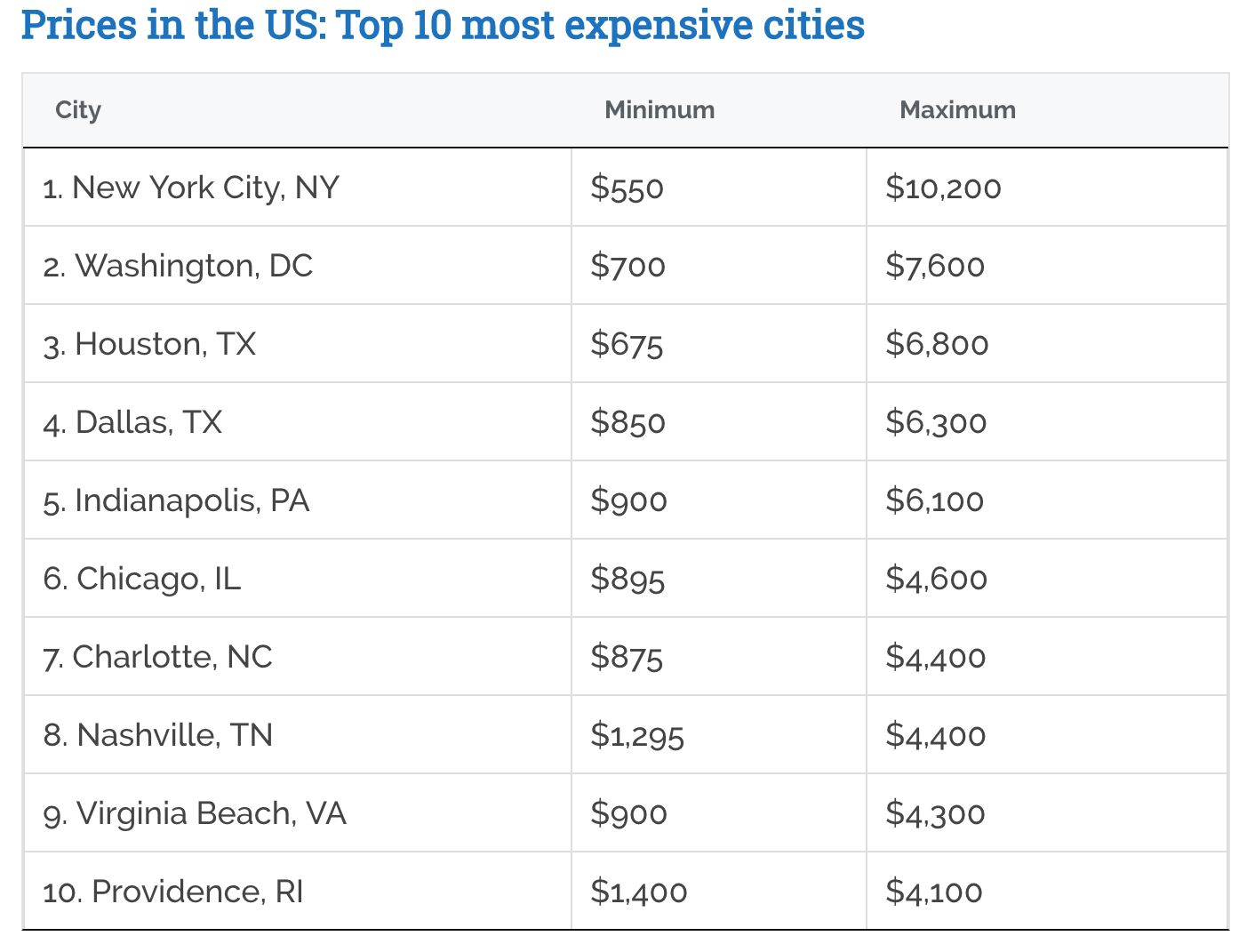
Direct Cremation Price Comparison
Therefore, be sure to look around and make comparisons. For those interested, our Cremation Price Guide compares the costs from 40 different states.
Pro’s & Con’s of Cremation & Burial
Benefits of Cremation:
- You can still have a funeral service and burial before or after
- It is less costly than burial, although many people are talked into spending more than anticipated.
- It’s quicker. Making these decisions can be a difficult and time consuming ordeal, especially when doing so during your time of loss.
- It is frequently considered more environmentally friendly. Burial is a source of environmental contaminants including the casket.
- Takes up less land and helps with the problem of overcrowded cemeteries.
- It is portable, so the ashes can be transported. You can put the ashes in an urn or other container and take them with you if you move.
- Families have more time to decide what to do with the ashes after the body has been cremated. Ideas include scattering ashes, interment, cremation jewelry, cremation diamonds, and cremation art are just a few.
Disadvantages of Cremation:
- May be against the deceased’s or a family member’s religion.
- It’s permanent decision and cannot be exhumed at a later date.
- Sometimes makes it more difficult for loved ones to mourn.
Should you want to know more, our how does cremation work guide goes through everything you need to know about the process.

Advantages of Burial:
- Provides a gravesite for family and friends to visit
- Considered a more natural method by some
- Required by some religions
- The body can be exhumed if necessary
- May give loved ones more closure
Disadvantages of Burial:
- Normally much more expensive than cremating
- Difficult for loved ones who live away to visit
Cemeteries can have restrictions on leaving flowers, taking pictures, or visiting hours
Cremation Urn Costs
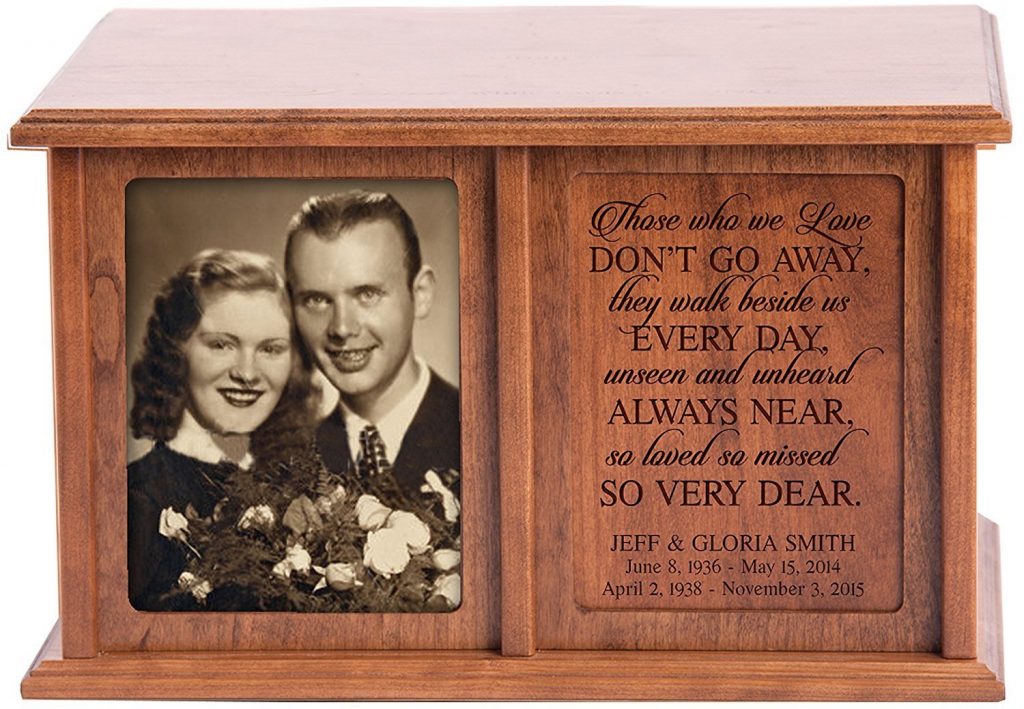
Double Companion Urn
If you’re looking to save on costs, it might be worth purchasing the urn online. There’s so many different types of urns and your choice will depend on a number of things.
Double Urns: Also known as companion urns, these memorials are for two ashes to be combined in the one urn. They can also be used for a large person. (Prices usually between $80-$500)
Cremation Boxes: Usually made of wood these boxes can hold ashes and sometimes momentos. Check out our guide on cremation boxes for more information about styles and price. (Prices usually between $50-$100)
Wooden Urns: A very traditional and elegant option, a wooden urn is a popular choice. (Prices usually between $50-$100)
Biodegradable Urns: You can turn ashes into a tree or scatter at sea using a water soluble urn. For more information, read through our biodegradable urns guide.
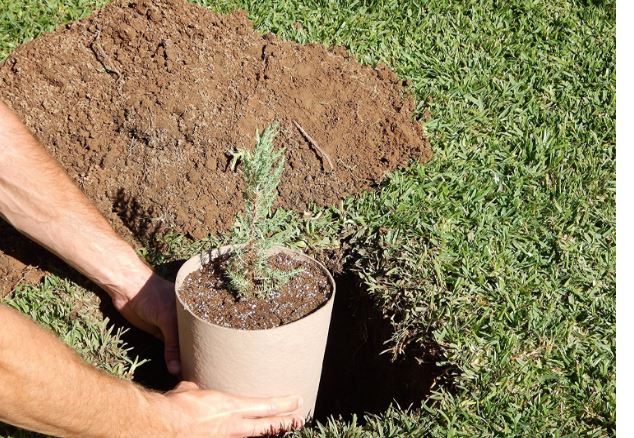
Planting a tree urn
Infant Urns: You have the option to memorialize a child with either a baby urn or some keepsakes jewelry. (Prices usually between $15-$50).
What does the Bible say about Cremation?
Cremation in the Bible and references to burial are mentioned throughout the course of it. It was the usual practice by the ancient Greeks, but the Hebrews used burial. Both methods were used by the Romans.
Many feel that had God seen cremating as sinful, he would have condemned it as he did with other imprudent religious practices.
Does cremation interfere with the resurrection?
Some are afraid that resurrections will not be possible because the body is no longer whole, however, even with a conventional burial, the body eventually decomposes and the body no longer exists.
It may answer that question if you consider that firemen frequently burn to death in their line of duty. In some cultures, stillborn infants are immediately cremated.
The lack of their bodies would surely not deprive those individuals of the resurrection.
Ecclesiastes 12:7, “Then the dust will return to the earth as it was and the spirit will return to God who gave it.”
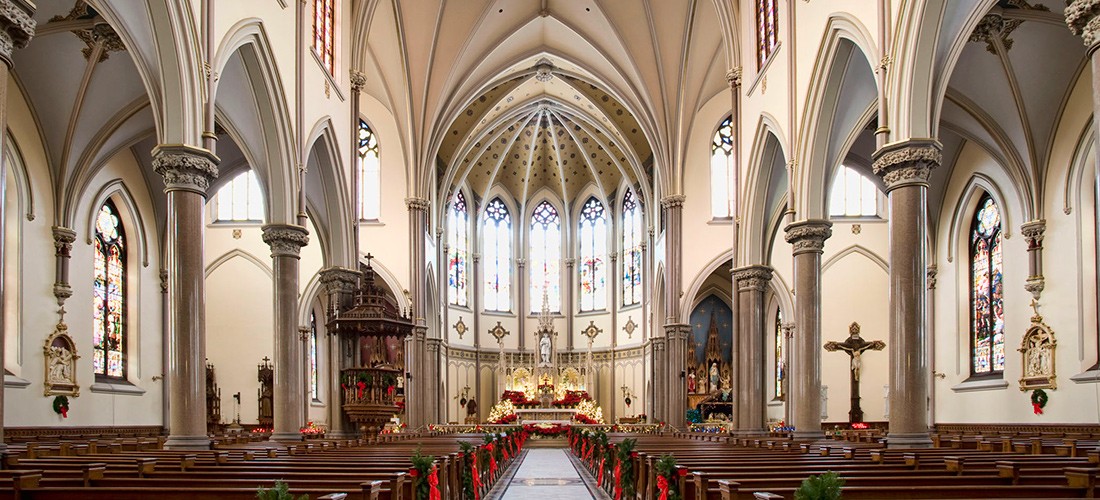
St. Louis Catholic Church
Catholic perspective on cremation
Although the Church do not favor it, they have changed their guidelines in recent years to allow Catholics to be cremated.
It first began allowing it, but only after funeral rites with the body present.
Funeral service after cremation
But due to the large increase in the practice and because many families are unable to afford a conventional funeral and burial, the Catholic Church now allows the funeral rites to be held after the cremating, with the ashes present.
There is an exception, which is when a person chooses cremating as a way of denying the Christian teaching on Resurrection.
“The Church earnestly recommends that the pious custom of burial be retained: but it does not forbid cremation, unless this is chosen for reasons, which are contrary to Christian teaching.
-The Code of Canon Law, 1985, #1176.3
Religious perspectives on cremation
Changing demographics and opinions on religion play a role in the popularity of being cremated. Many Americans no longer have religious preferences. Additionally, many of the world’s religions have changed their views on death and cremating.
Below is a list of a few religions and their beliefs toward the practice:
Buddhism
Buddhism’s philosophies are based on Siddhartha Gautama’s life, who is also known as the “enlightened one.” It does not require that someone believe in any god or observe a particular funeral practice.
Because Buddha was cremated, most Buddhists choose the same, but they can be buried as well, if that is their preference.
Hinduism
The Hindus believe that the soul is essentially untainted, however, it requires a body in which to live. They feel that the body is attached to the mortal world due to its desires and connections.
They believe in reincarnation, which is when at the time of death, the soul leaves the present body and enters another. This can recur many times until the soul becomes perfect and attains Mukti, which is a union of the source.
They feel that cremating the body aids in the soul reaching Mukti quicker.
If you want to learn more, have a look at our Hindu Funeral article.
Judaism
Jewish law is explicit that the dead must be buried. They believe that the responsibility of the arrangements for the interment rest in the hands of the family.
Even if the deceased left instructions for cremation, the family should arrange for burial in a Jewish cemetery because our bodies do not belong to us, but to God. However, this does not apply if the person was cremated against their will.
Nevertheless, it is still appropriate to do mitzvot and recite the mourner’s prayer in remembrance of their soul.
Islam
Islam is one of the few religions that are intensely opposed to cremating because they consider it impure and due to the belief that after death, the body is to be respected as it was in life.
Muslims are prohibited from participating in cremation by any means including stating an approval of it or by observing it.
In addition, they believe that the body is necessary for mourning because it’s a reminder that we all must die. They also feel that various parts of the body are required for resurrection.
Mormons
Mormons deeply believe in the sanctity of God’s creations. Although they do not believe in any act that is destructive to their bodies; many of them do choose to be cremated.
Jehovah’s Witness
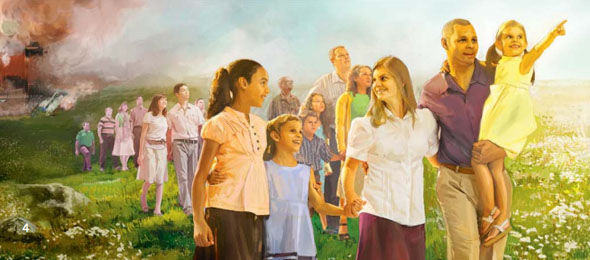
Followers of the Watchtower Bible & Tract Society, the religion is know for its strict and unique view on particular topics. However Jehovah’s Witness believe in cremation, in fact they encourage it.
Cremation & Burial Effect on the Environment
The environment and how each form of decomposition affects it is a growing concern for a large number of people. It’s important to know how each one affects the environment.
Effects of Burial
Unfortunately, a traditional burial has a major negative impact, due to the tune of approximately 800,000 gallons of formaldehyde in embalming fluid each year.
A 10-acre cemetery contains an average of 1,000 tons of casket steel and enough wood to build over 40 houses. In addition, overcrowded cemeteries have no room for plant or animal life.
Many people are unaware of the negative impact that cut flowers have on the environment. Most of the cut flowers that are bought for the purpose of leaving at a loved one’s grave are grown in South America where intensive amounts of pesticide are used, some of which are banned in North America.
Effects of Cremation
The crematoria emission of vaporized mercury is a subject of concern and controversy. Vaporized mercury disperses into the air and eventually falls back to earth in what is frequently know as acid rain, which is then deposited on our water and land. Humans are mainly exposed to this toxin through food.
Nevertheless, it is important to mention that the amount of the emission of this toxin from cremating is minor when compared to wood burning fireplaces, industrial boilers, diesel vehicles, and even dentist offices (Due to the mercury in fillings).
Alternative Options to Burying & Cremating
As nations become more environmentally aware, there are a number of other options that people can choose.
As with many other things in life, money is a huge factor in the negative impact that traditional burial has caused by urging the grieving families of the deceased to purchase unnecessary and expensive products and services.
Fortunately, new branches of the funeral industry are now beginning to offer alternative approaches, such as promession, which is now being developed and alkaline hydrolysis, which has recently become available in Florida.
What You Can Do to Help
Burial
You can do your part by choosing a biodegradable wood, cardboard, or wicker casket, which are more easily absorbed into the earth and much less expensive than conventional caskets.
Another option would be using a shroud, which is a wrap frequently made with handles. Some burial sites accept these shrouds or a biodegradable casket only.
You can forgo embalming. Unknown to most, embalming is not required by law unless special circumstances are present such as the necessity to transport the body a long distance or the person had a communicable disease.
Cremating
When you are choosing a provider, request information about their use of pollutant filters and mercury emissions. In addition, request that they remove and recycle prosthetic limbs, pacemakers, and any other medical implants.
If you intend to bury the cremated ashes, use a biodegradable urn.
As mentioned, a recent method called promession, prepares the body in a way that mimics nature’s method of decomposition. This process enables the body to be integrated into the earth within a year. Promession can be used with both burial and cremation.
Burial Vs Cremation: What will you decide?
There is a lot to consider when making such a major and personal decision. Look at all the pros and cons. Consider how each one affects the environment and what you can do to make a difference. Think about the religious perspective on both.
What is your specific religion’s perspective? Even considering the statistics may be of help when making these choices for you or your family member.






My mother was recently diagnosed with a terminal illness. She wants to plan her own funeral while she’s still around, so we’re getting her affairs in order right now. She’s decided she wants to be cremated because she wants her ashes to be re-purposed into something like jewelry or art.
My father is very sick and he will probably pass away in the near future, so he is trying to decide if he would prefer burial or cremation. I am glad that I found this article because I did not realize that you can still have a funeral service before or after the cremation takes place, so we will still get a chance to remember and celebrate my father with the family. Also, the fact that we can scatter the ashes in his favorite places in nature would be a great way to remember him and feel that he is still with us in some way.
My funeral is paid for but I’m having second thoughts about being buried. Due to the fact that my body would have to be transported 300 miles to where the cemetery is and inconvenient for family.
I thought it was great how you talked about the fact that cremation is considered more environmentally friendly when compared to burials. My mother recently passed away and in her will, she stated that she wanted to be cremated and have her ashes spread across her favorite park in the mountains. It would be great if we could find a reputable company that provides cremation services so that we can honor my mother one last time.
My father was thinking of being cremated because there’s no embalming necessary if he wants to go cheap. If I were to guess, the reason why he prefers that is that no memorial service is to be held which will make the service affordable. Now that you mentioned it, having an environmentally friendly option does seem sensible so I’ll take him to some funeral homes to ask for affordable options.
I appreciate what you said about not embalming the body if you get cremated. I believe that cremation serves as a great option because it is more cost-effective than a traditional funeral. When my time comes, I’ll consider getting cremated as a way of saving my family some money during a trying time.
It’s interesting to know that there are other benefits about burial than the cost-effectiveness. My grandmother is preplanning her funeral, and we are looking for advice. I like that you mentioned you can accelerate the process of the paperwork with cremation.
I like that you mentioned how families plenty of have time to decide what they want to do with the ashes after cremating the body. My aunt has recently passed away this month, and my family is having a difficult time planning the funeral. I think that having her body cremated would allow us to have enough time to thoroughly plan a funeral.
It makes sense that cremation could be eco-friendly because it doesn’t require a casket. My godfather has been thinking of planning his funeral. He will be fascinated to know how beneficial cremation is.
My grandfather just passed away two days ago and we’re considering to have him cremated. I agree with you that cremation takes up less and reduce the problem of overcrowded cemeteries. I just hope that we’ll be able to find a program that caters to a burial at sea.
I liked that you mentioned choosing burial will help you to provide your family and friends with a gravesite to visit. My father is pre-planning his funeral, and we are looking for advice to help him. I will let him know about the benefits of burial to help his decision.
My Aunt passed a few years ago. She was cremated and then interred into our family lot at the church cemetery my family attended for 5 generations. She’s now between my grandparents with a bronze plaque on their headstone. It’s actually quite nice to be able to visit the family lot and touch their markers, including hers. Even though she’s cremated, she’s there, just like all the others along with my parents who were traditionally buried.
I like how you mention that you can still have a service and burial if you decide on cremation. My husband and I have been tasked with handling his parent’s bodies since they both died in a car accident this week. It was sudden so they didn’t have a plan in place, but I think that cremation is something they would have wanted.
Charlotte Fleet, I’m saddened for your family’s tragic loss. Please know that a complete stranger cares about you and has you in their prayers.
One needs to stand back and look at grave burial from the deceased family’s point of view, and to decide if they can afford it, and is it unfair to place this burden on them, then you need to look closely at the role the undertaker plays and the fees he charges, and obtains from people in dire straights, many of whom are struggling to get by. The fact is a financial Civil War is going on between the two parties and a great deal of double-dealing conniving is taking place. A recent instance: I told an undertaker we preferred cremation, we got he’s agreement on this, then he tried a STING on us, he offered to bury the URN for us in our grandparents grassed over grave, he wanted £750 Pounds, about $1300 dollar for digging one shovel full of eath for us, and putting the urn in. Think about it, these rogues are about, and need to be shown the door.
Very helpful article for those of us having a hard time accepting the act of cremation when burial has always been our family’s choice for many generations. But with the recent death of my adult son many miles away, cremation and having his ashes sent to me was the only way. I’m trying to take comfort in the fact that he will be with me in my home now, even if it’s only in an urn. I mean, how often do people really visit gravesites of loved ones?
Wow I’ve been reading these statements here, I feel badly for everyone’s loss here, but yours stuck to me.
I am very sad for your loss, but choosing the cremation was the best solution in your case fir sure.
I had a pet die a few years ago, we did bury him, the next pet years later we had him cremated because it was winter time & I get to keep his ashes with me always, so I know exactly how you feel I think. Well take care & stay home safe away from this horrible virus, my thoughts are with you, Melody
I can’t get over the fact of leaving a loved one in a hole abandoned and hardly ever see or visit’em, I’ll rather have them with us for parties ,celebrations even holidays/at all times. My cousin cremated his mother and takes her everywheres with him (I think that’s beautiful)
Love this! Trying to decide if cremation is for me. Thinking of putting part of my ashes in the burial plot with my dear mom and dad!! The rest of me can be with the kids for holidays! Thanks for your comment!
In both burial or cremation the body eventually disintigrates!
So cremation seems smarter and less expensive.
Thanks for suggestions!
Ove
It’s good that you point out that cremation is more affordable than a traditional burial. I want to spare my family the expense of a burial after I die, so I’m considering having myself cremated. I’m going to look for a good funeral home that offers cremation services in my area.
I like that you mention that cremation is more quick than burial and that you can still have a funeral service while still doing cremation. My husband and I have been trying to plan his grandpa’s funeral because we are the only living relatives left. I think we should look into finding a professional with experience in cremation funerals that can help us know what to do and where to start.
Thanks for pointing out how cremation urns are typically lower in cost than the cheapest caskets for a funeral. My mom recently passed away after a battle with cancer, and one of her final wishes was to be cremated. We will be sure to work with a funeral home to create a meaningful memorial service for my mom and get the right urn for her remains.
It’s good to know that being cremated can cost less than having a traditional burial. I’m thinking of pre-arranging my funeral and paying for it in advance, so this option will be good for me who’s trying to save money. I’ll try shopping around nearby funeral homes and compare the price of their cremation services first before deciding.
My dad died two days ago due to COVID, which is why we’ve decided to have his body cremated. I agree with you that direct creation is more practical because there will be no memorial service needed. Well, you’re right that paperwork and death certificate must be processed right away.
My son, died at 36 years old. He got sick and died while visiting friends in Colorado, while we live in SC, I could not bear the thought of leaving him there as he was a family guy through and through. So we made the decision to go thru with cremation, and after staging a tremendous Celebration of Life with friends and family, he is here at home with us. I have no idea if this is the best decision and no idea how this ends….maybe he’ll just stay with us. I love him so much. His dad.
My mother just passed and we have family throughout the country even Mexico ,some that simply can’t afford or cross legally so i think cremation is best as they can all have a chance to mourn her in person as well as have multiple church masses. Call me selfish but I feel alot better knowing that she’ll always be with me/us.
A most interesting read. In Jamaica there is high skepticism re cremation so I intend to share this widely.
Even though I’m still young I would only want my body buried.My belief is being cremated is a waste to your body.If you decide that there’s no point in us being alive
It’s nice that you talked about how cremation is usually considered more environmentally friendly. I managed to catch a documentary show on the TV last night and it was all about cremation. It seems the process of cremation is more complicated than I thought and they’d need some crematory system parts if the equipment ever breaks down.
Thank you so much for sharing your thoughts with everyone. I am getting closer all the time to using one of the options and it has helped me a lot. The thought of being embalmed is more than I can handle, so I have been thinking about all this a lot lately. Thanks Again and best to you.
My parents were both buried in a cemetery, while my brother was cremated. The nice thing about this was that the cemetery allowed us to place his remains on top of one of my folks and we placed a beautiful plaque for him. He never married and wanted to be cremated. Now when we visit our folks’ graves, we also visit him. The burial for our brother’s remains was very reasonable. We are now all thinking about doing it this way. A celebration can be held when it is right for the family. Also, we had a private burial for just the family when Mom passed, and then had a celebration of life later in the day.
I’m a 100% disabled veteran who will get buried in a VA cemetery along with my wife. The VA gives us a plot, a Vault, opening and closing of the graves. I just want us to have a lined box with no embalming or services. Pickup of body and Transportation to burial site.